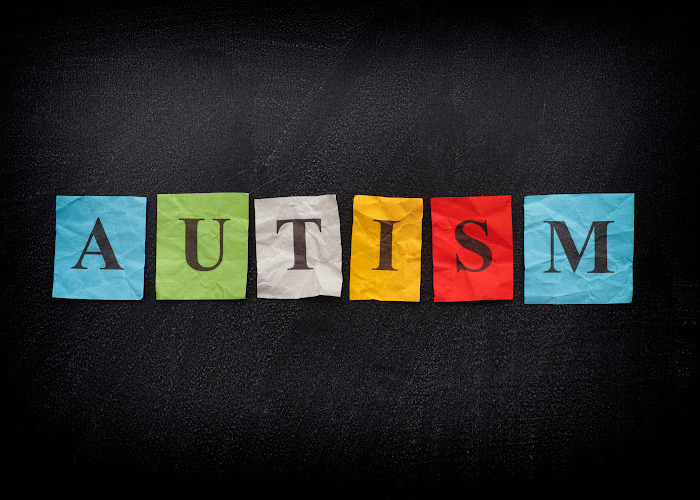It's crucial to know that students with autism and ADHD need special study strategies. Autism…

What are Autism Alert Cards and Should You Have One?
Having a condition like autism can present challenges in public situations. An autism alert card is one potential tool that some individuals use to help communicate their needs.
This article explores what these cards are, their intended uses, and some of the pros and cons of using them.
What Is an Autism Alert Card?
An autism alert card is a small card that a person carries to disclose that they have autism or a related condition. These cards are usually wallet-sized so they can be easily pulled out as needed. They typically contain brief statements intended to alert others that the cardholder has difficulties with communication, sensory issues, anxiety, or other common autism traits.
The goal of these autism alert cards is to encourage compassion and accommodation from the public. For example, if the person carrying the card is having trouble communicating, fidgeting and stimming to self-regulate, or displaying signs of sensory overload, they hope the card will provide context to others. The desired result is that people see the card and respond with kindness and understanding.
How Are Autism Alert Cards Used?
There are a few common situations where someone might present an autism alert card:
During overwhelming sensory experiences: For example, loud noises, crowds, unfamiliar settings, etc. The card signals a reason behind any visible anxiety or need to exit the environment.
Difficulty communicating: The person may use the card to indicate challenges answering questions, expressing needs, making eye contact, or reading social cues.
Repetitive behaviors or stims: Flapping hands, pacing, spinning, and other self-regulatory behaviors may draw unwanted attention. The autism card clarifies why the person is stimming.
Interactions with law enforcement: Adults and kids on the spectrum are vulnerable in police interactions. The card proactively highlights communication challenges.
The Pros and Cons of Autism Alert Cards
Autism alert cards have some potential upsides but also raise concerns for the autism community.
Here are some possible benefits:
Increase public autism awareness: They expose members of the public to accurate information about the diversity within the autism spectrum. Over time, this can build more collective knowledge.
Allow people to self-advocate: The process of using the card gives individuals agency to disclose to others when needed. This can be empowering.
Encourage compassion: At their best, the cards motivate kinder, more thoughtful community interactions. A little understanding goes a long way.
However, there are also downsides that deserve consideration:
Privacy concerns: Disclosing medical diagnosis to strangers raises privacy issues. Also, some people may insensitively circulate photos or videos with the card visible.
Variable public response: While many respond compassionately, bias and discrimination remain issues within society. Some members of the public may still react negatively or refuse reasonable accommodations.
Uneven power dynamics: A vulnerable person relying on the goodwill of strangers may not receive the outcome they deserve. There are risks if the power imbalance is abused.
No mandate for legal accommodations: Although the cards request patience and support, businesses and organizations are not necessarily required to alter policies or practices.
Weighing the Pros and Cons
Overall, autism alert cards offer some potential benefits but also various drawbacks to evaluate. Individuals and supporters considering their own alert card should carefully reflect on their personal needs, privacy boundaries, and local community norms. There likely is no universal answer for all on the spectrum.
As with many autism-related choices, self-advocates would be best served if our communities practiced more consistent kindness, respect, inclusion, and understanding. While alert cards may facilitate some positive interactions, addressing stigma at its roots is still an essential need.
Progress takes compassion from all people. With more widespread effort, public spaces can become safer and more welcoming for all.
Conclusion
Autism alert cards act as tools to disclose diagnosis and request patience from the public. Those considering using one should weigh the pros and cons carefully for their situation. Building more inclusive and understanding communities must also involve addressing root causes of stigma.
With compassion and moral courage, societies can support the dignity and humanity of all people.

Frequently Asked Questions About Autism Alert Cards
Here are answers to some common questions about autism alert cards and their use.
What exactly is an autism alert card?
An autism alert card is a small card that people on the autism spectrum can carry to let others know about their diagnosis. The cards typically say that the cardholder has autism and may communicate or behave differently as a result. They are meant to encourage patience and compassion when challenges arise.
Where can I get an autism alert card?
Many local autism societies or non-profit groups offer free autism alert cards. You can also find templates online to print your own. Some options for customizing with your name, emergency contact, etc. exist as well.
Should I carry an autism alert card at all times?
This is a personal decision. Some people only pull out the autism alert card selectively when challenges emerge. Others keep it visible in a lanyard or wallet for any interaction. Each person needs to decide what meets their needs best.
Do businesses have to accommodate me if I show an autism alert card?
Unfortunately, while most places willingly assist, the autism alert cards do not legally mandate accommodations. They simply request compassion. Anti-discrimination laws, however, do require reasonable adjustments at times.
Can anyone order an autism alert card, even without autism?
Technically yes, but ethically no. Impersonating someone with a disability is unacceptable. Most sources try to verify a person’s diagnosis before providing a specialized autism alert card.
What are some alternatives to autism alert cards?
Instead of cards, some people wear bracelets or necklaces noting their autism diagnosis. Communication boards, tablets/apps, picture cards, notebooks, and letters are other options.
What are potential downsides of autism alert cards?
Concerns include privacy risks, uneven public response, no guarantee of policy changes, and placing burden on the disabled person. Some report mostly positive experiences though.



This Post Has 0 Comments